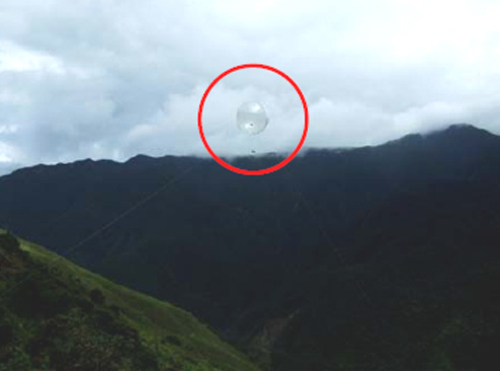Biodiversity and sustainable management
FOR 816 Be 473/38-1
From 02/2007 to 01/2010Principal Investigator: Erwin Beck
Staff: Kristin Roos
The threat of southern bracken: Investigation and modelling of a fire-triggered succession that leads to the destruction of pastures in the area of the tropical mountain rain forest of southern Ecuador, and the potential for repastorization of abandoned areas
Researchers: E. Beck, K. Roos (University of Bayreuth), J. Bendix, R. Rollenbeck, B. Silva (University of Marburg)
 |
Fig. 1: Slope of the Rio San Francisco-valley, completely overgrown by bracken 4 months after a big fire |
Bracken (Pteridium aquilinum s.l.) is a very aggressive cosmopolitan weed that causes severe problems for farmers, foresters and conservationists. It rapidly forms closed canopies and thus outcompetes pasture grasses, forbs and tree saplings. Due to its complex rhizome system, it evades most kinds of control. Rhizome growth and frond production is stimulated by fire. While bracken in the northern hemisphere has been intensely studied, biology and control of its southern representatives, e.g. the neotropical Pt. arachnoideum is less well known. Based on a preceding study in the RBSF, the actual project investigates the competition of Pt. arachnoideum with the major pasture grass of the area, Setaria sphacelata, following the common practice of periodic burning of the pastures. Competitive growth of both species will be simulated with a grid-based vegetation model which uses traits of average individuals (Plant Functional Types PFTs). Parameterizations of PFTs will be done with data from field surveys. The measurements will be completed by a sophisticated burning experiment, to achieve the data required for modelling the different responses of both species to fire/heat, and finally to predict in a scenario the consequences of repeated pasture burning. In addition ongoing experiments for bracken control will be continued. In this phase the potential for repastorization of abandoned and bracken infested areas will be tested.
 |  | |
Fig. 2: Quantitative vegetation mapping by aerial photographs taken from a camera mounted on a balloon. Regrowth of the vegetation after an experimental fire is monitored. The experimental area is installed with soil temperature sensors and an automatic microclimate station. | Fig. 3: Burning of pastures is not as easy: First experiment in Sept. 2008. |
Homepage: http://www.tropicalmountainforest.org/

